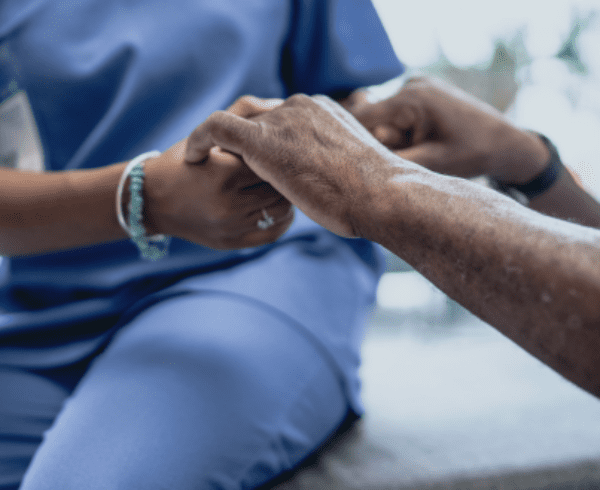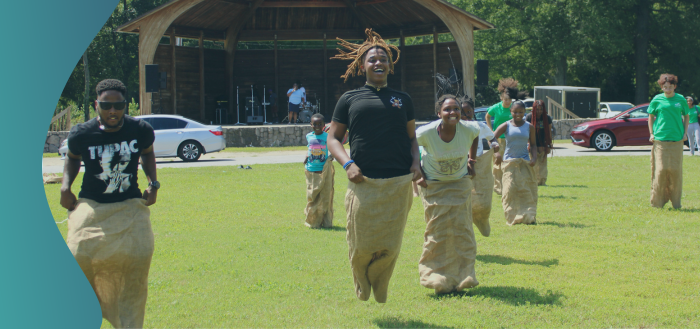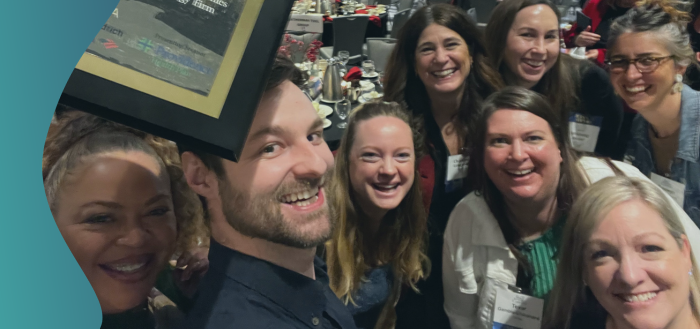June 16, 2023
For over 40 years, Lyon-Martin Community Health Services has focused on providing high-quality, compassionate, and trauma-informed health care services for the LGBTQIA+ community. Originally founded as a clinic to give lesbians in the San Francisco Bay Area access to nonjudgmental, affordable health care, they have become a leading provider of medical, gynecological, and mental health care for transgender people in California.
In fall 2021, OCHIN partnered with Lyon-Martin to expand options for sexual orientation and gender identity (SOGI) as well as surgical history in the OCHIN Epic electronic health records (EHR) system. The goals were to better support the care of LGBTQIA+ patients, while ensuring the new terms mapped correctly to the Uniform Data System (UDS) to accurately reflect their patient population and comply with Health Resources and Service Administration (HRSA) reporting requirements.
“Lyon-Martin has been a tremendous leader in sexual and gender minority (SGM) care in the U.S. and has blazed the trail for so many,” said Megan Bowen, practice coach at OCHIN. “We’re delighted to be able to assist Lyon-Martin with an EHR implementation that is truly representative of their patient population.”
The expanded SOGI options include:
- 90 more gender identities
- 15 more sexual orientations
- 10 more pronoun sets
- 1 new question (Is the patient trans/gender diverse?)
- 1 new surgical history form that accurately captures surgeries
Lyon-Martin, which uses the updated abbreviation SOGII (sexual orientation, gender identity, and intersex status), considers this work to be a critical part of transforming care for transgender and nonbinary people and improving health outcomes among these systemically marginalized communities.
“Sometimes we have to go the extra mile for people who experience marginalization in the health care setting so that they can access the things that they need,” said JM Jaffe, executive director at Lyon-Martin. “We know that trans people avoid care [because] they have horrible experiences getting medical care, and something as simple as creating a SOGII build that is reflective of the terms that community uses … so that the trans people that you serve can see themselves in your forms, in your environment, in your organization … that builds trust.”
A model for culturally responsive, community-based care
Lyon-Martin is dedicated to serving transgender, nonbinary, gender nonconforming, and intersex communities as well as cisgender women, with sensitivity to sexual orientation and gender identity. All services are provided regardless of ability to pay. As one of the only transgender-led clinics in the world, 80% of their staff are transgender, and 75% identify as Black, Indigenous, and people of color (BIPOC).
Named in honor of pioneering lesbian civil rights activists, Phyllis Lyon and Del Martin, they were the first clinic to successfully get Medi-Cal coverage for a variety of gender-affirming surgeries. They were also one of the first community clinics in the country with a formalized program to ensure safe access to gender-affirming hormone therapy prescriptions and surgery referrals.
“Our clients are very low-income, and a large portion are marginally housed as well,” Jaffe said. With 65% of their patients identifying as transgender, 62% as LGBQA+, and 62% as BIPOC, they are committed to meeting the growing need for gender-affirming care in a primary care setting and have become a national model for culturally responsive, community-based care.
“When we think about how to work with this population, we have to think about intersectionality and oppression—and that means we can’t treat everyone the same, because not everyone needs the same thing,” Jaffe said. “Different populations and cultures will need different workarounds to get the same care that everyone else gets. For our patient demographics, we needed to be responsive to our communities and what they were asking for regarding terminologies. And that means understanding the differences between gender identity, gender expression, sex assigned at birth, and sexuality.”
Understanding the impact of gender-affirming care
LGBTQIA+ people—especially transgender people—face a wide range of challenges and health disparities and often experience microaggressions and mistreatment when seeking health care. Lack of accurate information related to patients’ sex and gender identity can result in misgendering—which can increase feelings of stigmatization and take a toll on psychological well-being— as well as adverse health outcomes. A new survey from the Trevor Project found that approximately 56% of transgender men, 48% of transgender women, and 48% of nonbinary youth seriously considered suicide in 2022.
Transgender patients require health care that addresses their unique health concerns, and leading medical and mental health groups agree that it is medically necessary to support them in affirming their gender identity. Providers can positively impact these patients through gender-affirming care, which includes a range of medical and psychosocial health care for transgender people of all ages.
Gender-affirming care is key to helping transgender patients achieve their full health potential. In addition to helping transgender and nonbinary people live safe and healthy lives, gender-affirming care also greatly improves their mental health and overall well-being. According to research published in the National Library of Medicine, seemingly small interventions such as listing preferred pronouns, using gender-neutral language, and using appropriate mental and physical health screenings can lead to significant impacts on patient experience, health outcomes, and quality of life.
Addressing health inequities
Collecting SOGI data is essential to supporting providers in delivering high-quality, gender-affirming care and addressing health inequities among LGBTQIA+ communities. Research has shown it has many patient- and population-level health benefits and ensures that important health care services are delivered, such as preventive screenings and interventions for behavioral health concerns. According to the Centers for Disease Control and Prevention (CDC), providing transgender people with the opportunity to share information about their SOGI in a welcoming and patient-centered environment opens the door to a more trusting patient-provider relationship.
For the last eight years, health centers across the country have been required to collect and submit this data to HRSA to receive federal funding. UDS requirements include collecting data around sexual orientation, gender identity, sex at birth, and pronouns. Although OCHIN’s SOGI category list was already more extensive than what UDS requires, it was still relatively limited.
“It’s a fine balance—residents in small towns don’t need 600 identities, but they do need to collect info on how their patients identify,” said Besha Grey, OCHIN’s lead analyst for Lyon-Martin’s transition onto OCHIN Epic. “Any information that’s included is available to the provider and the front desk, and some will also show up on the storyboard. Those tools are Epic standard and OCHIN standard.”
The UDS categories in OCHIN Epic were based on an ask that Lyon-Martin made with Fenway Health in Boston over a decade ago, but there are now a growing number of terms people use across cultures and across the world to describe their experience of sexuality and gender identity, Jaffe said. “What we’re really seeing is that people are not really seeing themselves in these categories. So, we opted to use the most expansive version of SOGII build possible.”
Supporting inclusive care
OCHIN and Lyon-Martin partnered on an intricate build to customize Lyon-Martin’s SOGI data collection and surgical history forms in OCHIN Epic to reflect their patient population more accurately. The goals of this project were expanded SOGI options that are reportable (data is valid for UDS reporting and accurately represents the patient population), patient-centered (experience is seamless for patients), and interoperable for other OCHIN members.
“Lyon-Martin requested a hugely expanded [SOGI data collection] form, and they requested a bunch of new orientations that UDS doesn’t think of—such as ‘polyamorous’—on how to structure relationships, and a ton of options for gender identity, such as ‘woman of trans experience.’ With Lyon-Martin’s approval, we mapped them back to valid UDS categories to help them be counted in UDS reporting … and there is also a free-text field for interoperability,” Grey said. “It was also built so if [a term] is a reasonable synonym for what OCHIN already has on the form, if the patient goes to another service area, it should show up as that reasonable synonym. Mapping back to OCHIN standard fields where appropriate means that results make sense for other OCHIN members and won’t break their reporting.”
In addition, an independent artist created templates for OCHIN Epic NoteWriter that reflect transgender-diverse bodies. Gender-affirming surgeries were also added to the surgical history forms so Lyon-Martin could better understand what surgeries their patients received. “We are currently working to come up with the best surgical history form for the [network] with the help of Lyon-Martin and other thought leaders in SGM health,” Bowen said.
Other customizations include:
- Hormone therapy prescribing and lab monitoring SmartSets
- Gender-affirming prosthetics and compression garment ordering
- MyChart name update and SOGI self-identification
- Referrals specifically for gender-affirming surgeries
Jaffe, who uses the pronoun they, said they have learned a lot about how to ask and talk about gender identity and sexual orientation over the 12 years they have been working for Lyon-Martin. By expanding options for SOGI and surgical history in OCHIN Epic, OCHIN helps Lyon-Martin and other community care organizations in our growing network to provide better, more inclusive health care that addresses the unique health concerns of transgender and non-binary patients, including transition-related medical procedures and mental health.
“We have, together, created our instance of Epic to be gender-affirming in many innovative ways—so much so that we have other clinics that focus on trans care asking to use our build,” Jaffe said. “I really like to encourage people to think of gender as a galaxy where everyone is their own unique star. Sure, there are commonalities among stars, but there are really no two that are quite the same. And that’s true in the world and the human experience. There is an infinite number of terms used for people to describe their experience of gender, and it can be as unique as someone’s own individual personality informed by their culture and social positions.”













